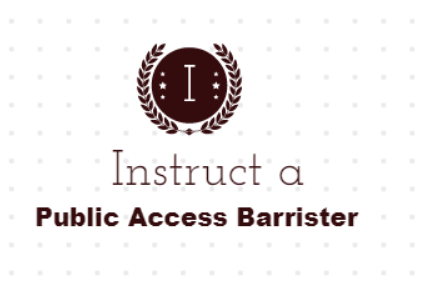On 1st August 2023 the Legal Affairs correspondent for ‘The Guardian’ reported in an article that ‘Tens of thousands of children in England and Wales have been left in limbo by delays in the Family Court that have meant many waiting over a year for their future to be resolved’. From figures published by CAFCASS the article went on ‘In a quarter of areas, the wait in family proceedings in public law cases was double the recommended government target of 26 weeks, with the longest delays in East London and Norwich, both of which had waiting times of 60 weeks in the first three months of this year.’ The complexities of Care Proceedings No one is more alive to last year’s statistics than the Family Court itself – it’s Judiciary and the practitioners within it. Care Proceedings remain complex proceedings, often involving more than one child and more than two parents. The fact that such proceedings only progress through the Courts once it is satisfied ‘there are reasonable grounds to believe that a child has or is likely to suffer significant harm’ is a give-away that they can be amongst the most serious of cases to come before the Family Court. The proceedings involve issues of promoting the fullest of parental participation and the completion of all necessary assessments especially in cases where there is the prospect of adoption of a child.
Going back to the statistics it has to be said that The Family Court is continuing, in the early part of this year, to play its role in improving on outcomes for children by reducing delays within proceedings.
Reducing delay
A number of High Court decisions this year have pushed forward this aim, for example, by delivering guidance on Part 25 applications in an attempt to avoid unnecessary case management hearings and imploring Judges and Advocates to be prepared to be flexible and innovative in an attempt to avoid adjournments where an intermediary is not technically required or otherwise not able to be provided to assist a party.
Strictly ’necessary’ Part 25 applications
Mrs Justice Lieven delivering Judgment on 23/02/2024 in West Northamptonshire Council v The Mother ( Psychological Assessments ) 2024 EWHC 395 (Fam) emphasised the need for Part 25 applications to be evidence based and rooted in ‘necessity’. She referred to unmeritorious applications for cognitive assessments becoming ‘commonplace and leading to unnecessary hearings.’ A reduction in the number of case management hearings within Care Proceedings can have the effect of moving efficiently to an Early Final Hearing or listing a contested hearing sooner rather than later.
Mrs Justice Lieven emphasised that before making applications for cognitive assessments the onus is on Professionals and indeed the Judge to consider ‘The Advocates Gateway ‘. She commented ‘It will often be the case that parents may struggle to absorb information, to understand the proceedings and to concentrate through meetings and hearings. However, the solution to this problem is not, in the majority of cases, to have cognitive assessments and appoint intermediaries. It is for all the professionals involved, including lawyers and judges, to bear closely in mind the need to use simple language, avoid jargon, and where appropriate check that a litigant has understood what is being said.’
Intermediaries where ‘ compelling reasons’ only.
Such guidance had been heralded by Mrs Justice Lieven in an earlier decision West Northamptonshire Council v KA & Ors [2024] where the Court was considering the use of intermediaries. The case involved a young child and the proceedings were in week 127 . Early in the Judgment Her Ladyship stated ‘ the delay has been highly detrimental to X’s best interests whether or not the orders sought are ultimately made’. The Mother was profoundly deaf (with wider communication difficulties) and the Final Hearing had been fixed. The issue was whether an intermediary was required for the entirety of the hearing. The principles Lieven J extracted from a consideration of the criminal authorities and said to be ‘directly applicable’ in the family court re-iterated that the recommendation of an expert for an intermediary is not’ determinative’ and intermediaries should only be appointed if there are’ compelling reasons to do so’. Finally ‘ if every effort has been made to identify an intermediary but none has been found it would be unusual ( indeed it is suggested very unusual ) for a case to be adjourned because of the lack of an intermediary’( Para 45f)
Inevitable Delay where welfare requires it.
There remain cases however in the Family Court where delay is inevitable. In Re P and E ( Care Proceedings : whether to hold a Fact Finding Hearing ) CA 26.04 24 the Court of appeal was concerned with 2 young children ,one of whom had suffered injuries in the parents care. The appeal was against a judge’s decision in care proceedings that a fact-finding hearing in respect of causation and perpetration of injuries to a child was unnecessary.
However ‘ the medical evidence indicated that the injuries would have been sustained or inflicted in at least two acts through different mechanisms – one (or possibly two) involving compression of the chest causing the sub-conjunctival haemorrhage and the rib fracture and another involving a twisting and/or pulling action to the left lower leg causing the metaphyseal fracture of the tibia.’ ( Para 45 ).
The Court of Appeal recognised the adversity to the children brought about by further delay in reaching final decisions as a ‘ very important factor ‘ but Lord Justice Baker held that a fact-finding hearing was necessary’ to provide a greater understanding of the risks of future harm and without that understanding it will not be possible to make plans for the future care of the children which safeguarded their welfare.’ (Para 55)
Conclusion
The two decisions of Mrs Justice Lievan , the first deterring unmeritorious applications within care proceedings and the second signalling that an intermediary will be appointed in the Family Court, not only were recommended, but where strictly required combine to help define the direction of travel in the Family Court as one of an efficient passage though the proceedings, avoiding any unnecessary’ stops’ along the way. However, the Court of Appeal decision allowing a Fact Finding Hearing in respect of serious injuries to a young child ensures that no child leaves the Family Court without safeguards for their future welfare in place.
Anita Thind, Barrister, St Mary’s Chambers




